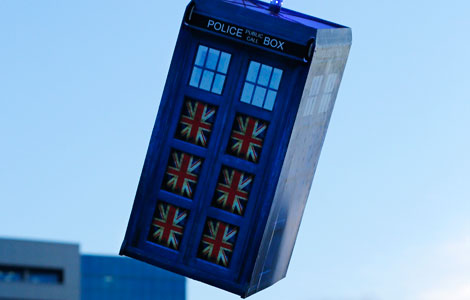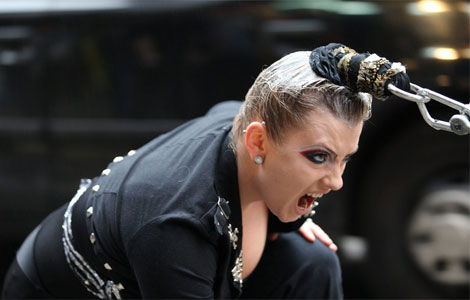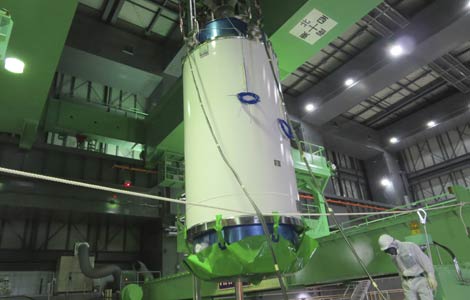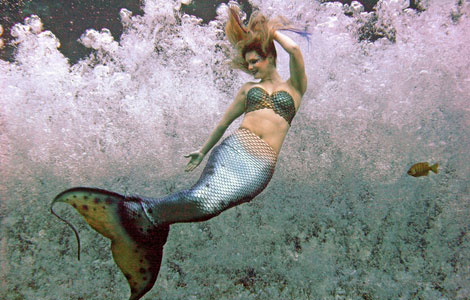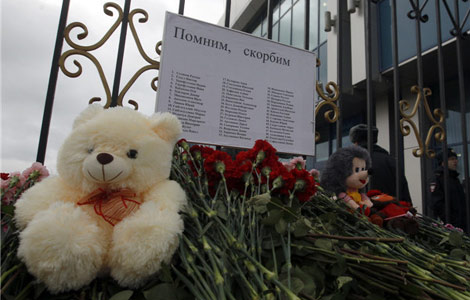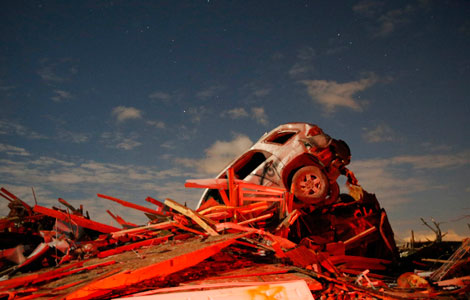

Cosmetics giant aims to increase product line for domestic market
L'Oreal Group announced Monday that its Tianmei plant in Yichang, Hubei province, will be the largest makeup production center in the Asia-Pacific area after two years of extensive renovations and upgrades.
Costing more than 200 million yuan ($32.8 million), the wholly owned plant's production capacity exceeds 250 million pieces a year, the company said.
As the world's largest cosmetics group, L'Oreal operates 42 plants globally. In China, it not only operates its Yichang plant but one in Suzhou, Jiangsu province, as well.
In 2012, L'Oreal's revenue reached 12.05 billion yuan in China, maintaining double-digit growth for a 12th consecutive year. It provides skin care and cosmetics products under 21 brands in China.
"The expansion of this plant is one of our most important strategic moves here in China, demonstrating our continued confidence in the long-term prospects for China and the Asia market, as well as our commitment to sustainable development," said Alexis Perakis-Valat, L'Oreal's executive vice-president for Asia Pacific and L'Oreal China CEO.
According to Perakis-Valat, the Yichang plant is manufacturing products for six in-demand brands, including L'Oreal Paris, Maybelline, Yue-Sai and Garnier, plus CCB Paris and Agnes b, which have not yet been introduced to the China market.
In addition to serving the domestic market, half of the plant's output will be exported to France and key Asia-Pacific markets, including Southeast Asia, Japan, South Korea and New Zealand, as L'Oreal attacks its goal of winning 1 billion new customers globally, Perakis-Valat said.
L'Oreal also moved its Asia-Pacific headquarters to Shanghai in July, further signaling China's importance.
"By having this plant in China, with half of production for export to mature markets with the highest of standards, we set the bar very high for the production lines, which is good for the reputation of made-in-China products and also good for Chinese consumers," Perakis-Valat said.
As leader of the Chinese makeup industry, L'Oreal has developed a wide range of products especially for Chinese consumers. L'Oreal Paris is the No 1 cosmetics brand in China, while Maybelline is the top makeup brand.
"We are locally producing almost all of the L'Oreal Paris, Maybelline and Yue-Sai-branded products that we sell in China," Perakis-Valat said.
"We still have a dream that the makeup market in China will keep growing rapidly, to become the largest in the world," he said, adding, "It's a realistic dream."
Compared with Japan and South Korea, China's makeup market holds great potential.
According to L'Oreal, on average, American women purchase three makeup products a year, French women buy two, and South Koreans five or six annually.
"In China, the figure is no more than 0.5 a year, which indicates a huge potential," said Perakis-Valat. "That's why we have heavily invested in China."
Although Perakis-Valat admitted that labor costs in China have risen, "we need to stay here, not only for the reason of being close to the most important market but also for the local talent".
S&P Consulting data show the total revenue of China's makeup market in 2011 topped 15 billion yuan and is expected to double within the next few years.
According to Euromonitor International, China's cosmetics market has maintained 15.4 percent annual growth over the past five years, far outstripping the global average of 4.7 percent.
Its researchers also found that while the US makeup market doubled its skin-care sector, in makeup in China it comprises only one-quarter of all skin-care sales.
lifangfang@chinadaily.com.cn

